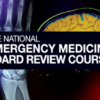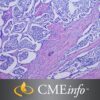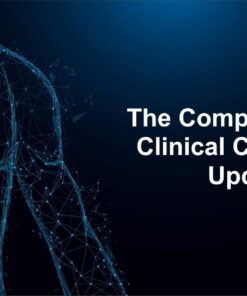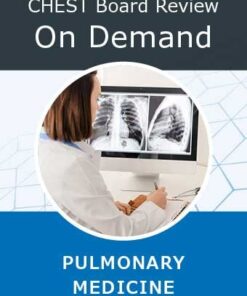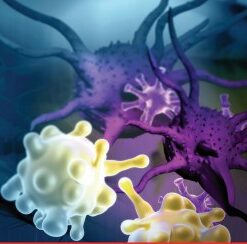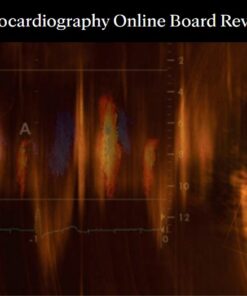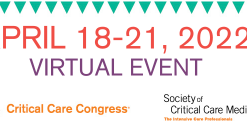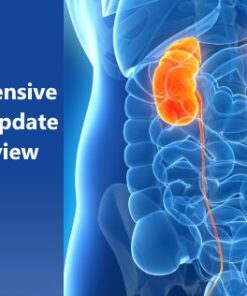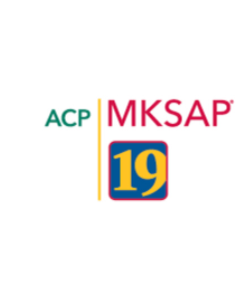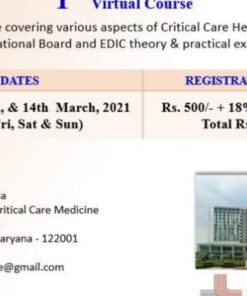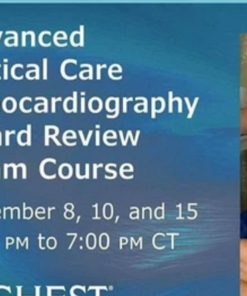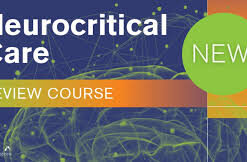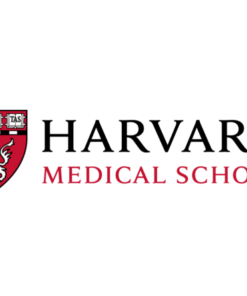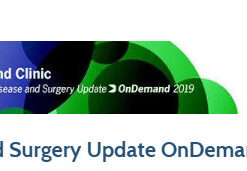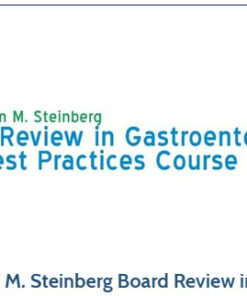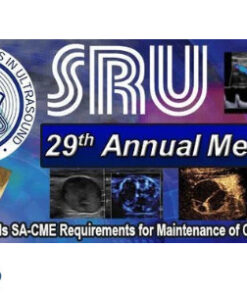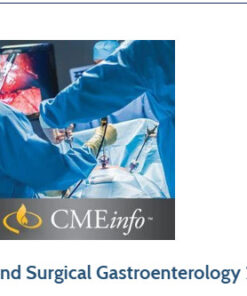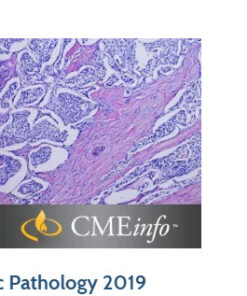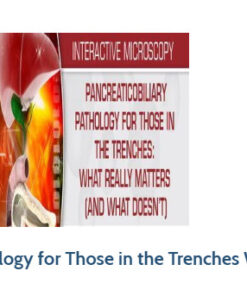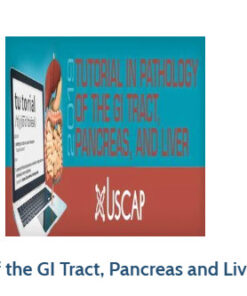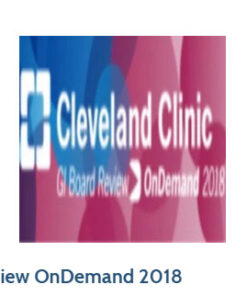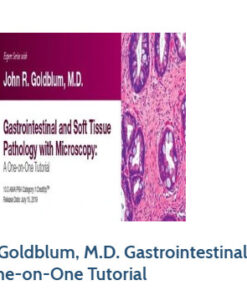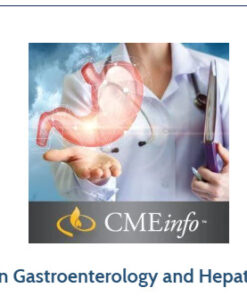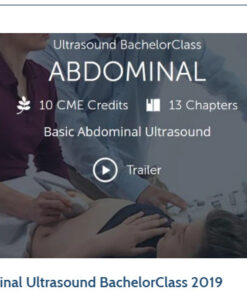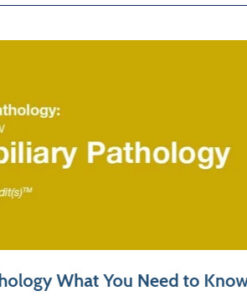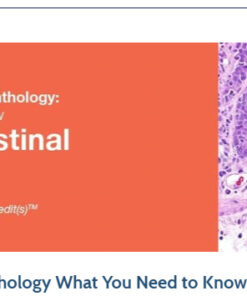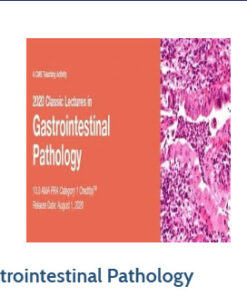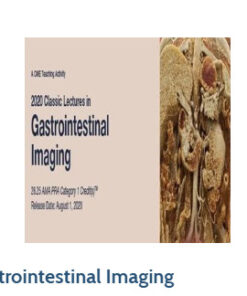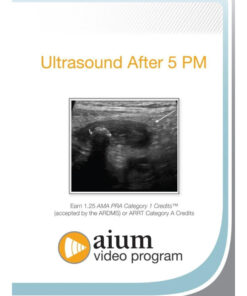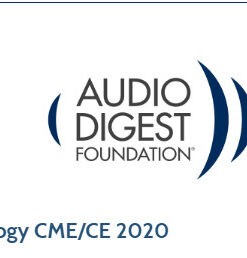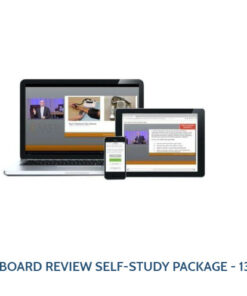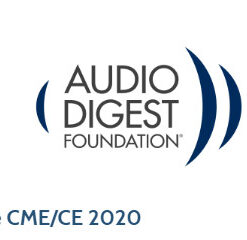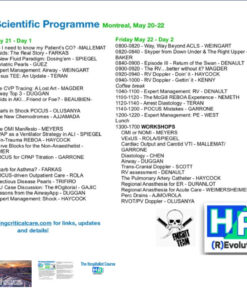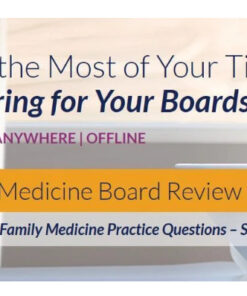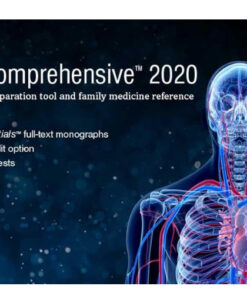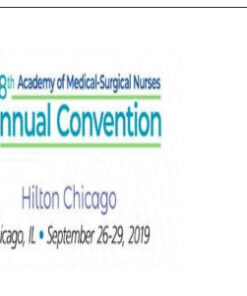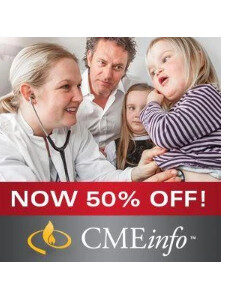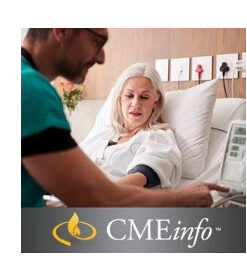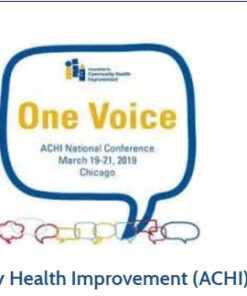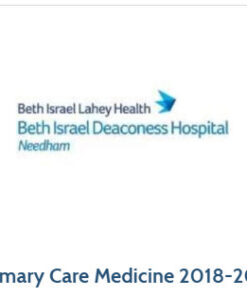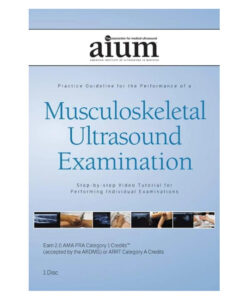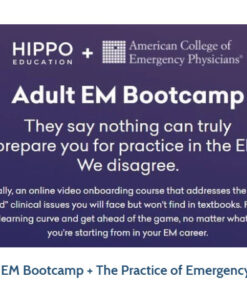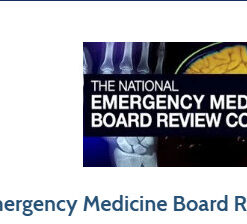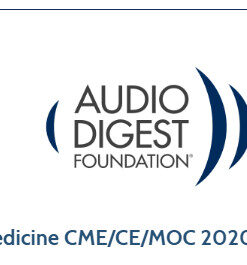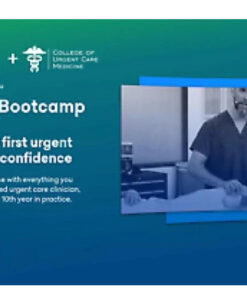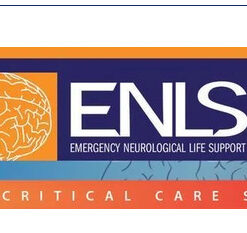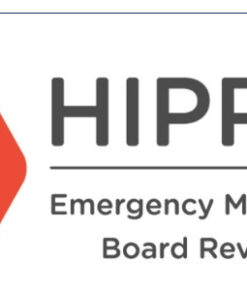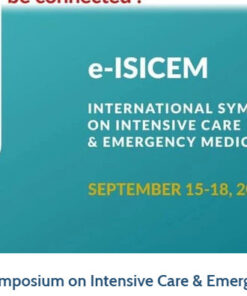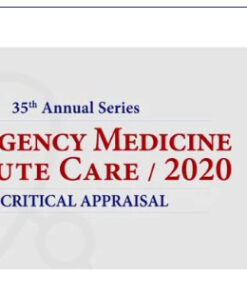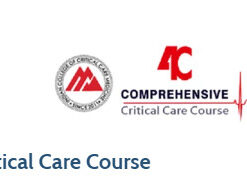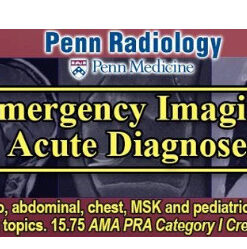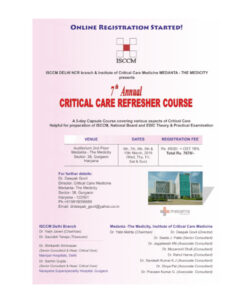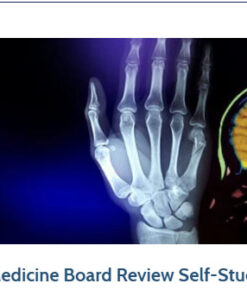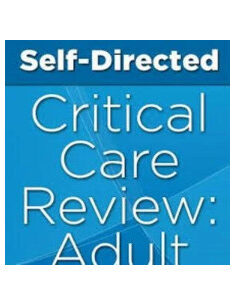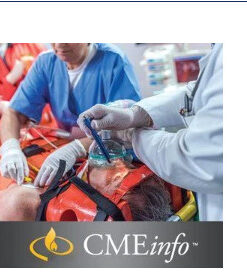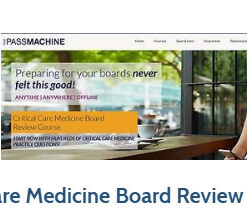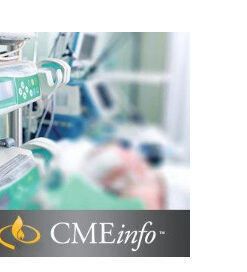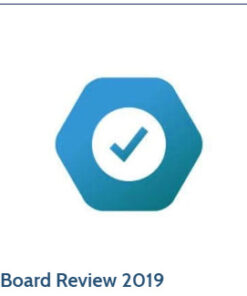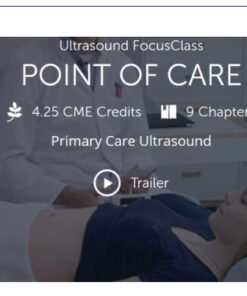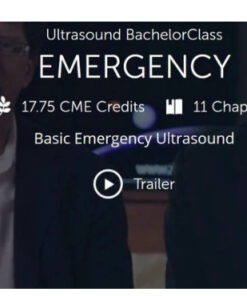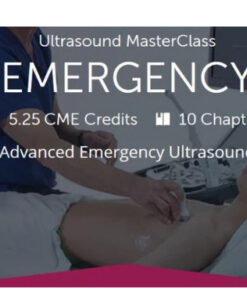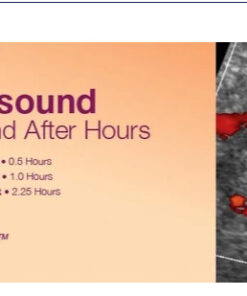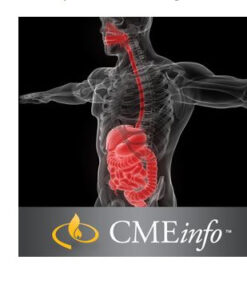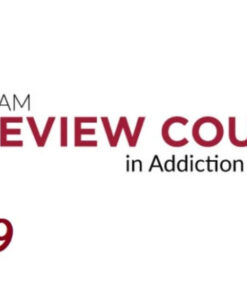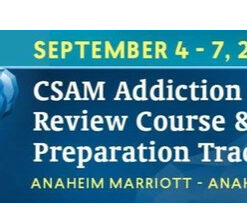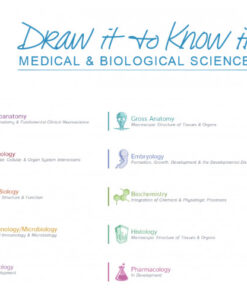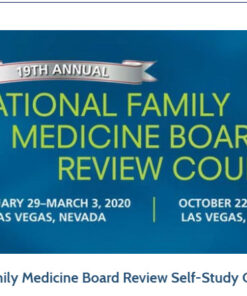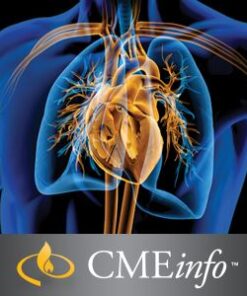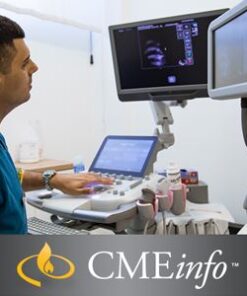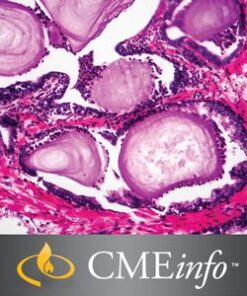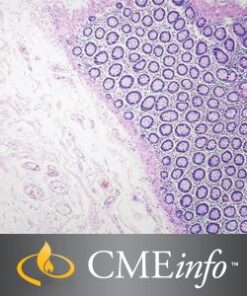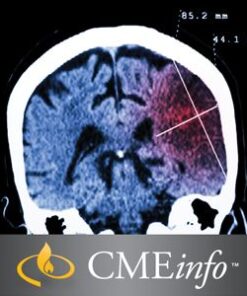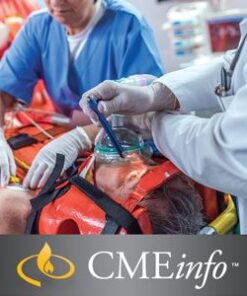- Oakstone Price: $895.
- Format: 47 Video Files (.mp4 format) + 1 PDF file.
- File Size: 3.7 GB.
-
Note : We will send ebook download link after confirmation of payment via paypal success
Payment methods: Visa or master card (Paypal)
- Illustrate effective management of bleeding and thrombotic risks in surgical patients
- Identify strategies for controlling postoperative pain and reducing opioid dependency
- Outline ways to prevent, diagnose and treat common infections that complicate surgical procedures
- Discuss multi-disciplinary approaches to minimize complications and improve patient outcomes
- Describe current guidelines for preoperative cardiac and pulmonary risk assessment and list several ways to predict and prevent cardiac and pulmonary complications using preoperative testing and intraoperative and postoperative interventions
- Describe bleeding and thrombotic risks in surgical patients and list several strategies to reduce complications through evidence-based use of blood conservation methods, transfusion, coagulation testing, anticoagulant reversal agents, and/or management of anti-thrombotic drug therapies
- Describe strategies to control acute postoperative pain using multimodal analgesia and reduce risk for chronic opioid dependency
- Recognize how to prevent, diagnose, and treat common healthcare associated infections that complicate surgical procedures
- Describe the perioperative complications associated with diabetes, renal insufficiency, delirium, and frailty, and list management strategies to optimize outcomes in patients with these medical conditions
- Recognize the impact of structural and cultural factors related to the healthcare system (e.g., provider stress, safety culture, communication strategies) on the safety and quality of healthcare delivery, and describe the potential of various multi-disciplinary programs (e.g., enhanced recovery after surgery, perioperative surgical home, CUSP) to improve health outcomes
- Perioperative Cardiac Risk Assessment and Testing – Ilan Wittstein, MD
- Perioperative Myocardial Ischemia and Stroke: Mechanisms and Management Strategies – Nauder Faraday, MD, MPH
- Perioperative Management of Patients with Cardiomyopathy – Todd Dorman, MD, FCCM
- Preoperative Evaluation: Optimized, Not Cleared – Leonard Feldman, MD
- Perioperative Management of Patients on Anti-Platelet Therapy – Nauder Faraday, MD, MPH
- Perioperative Management of Patients with Warfarin and Direct Oral Anticoagulants (DOACs) – Nauder Faraday, MD, MPH
- Preoperative Evaluation and Management of the Patient with Heart Failure – Ilan Wittstein, MD
- Controversies in the Management of Perioperative Hypotension – Todd Dorman, MD, FCCM
- Evidence-Based Preoperative Testing – Sean Berenholtz, MD, MHS, FCCM
- Controversies in the Preoperative Management of Prescription Medications, Herbals, and Supplements – Heather Sateia, MD
- Perioperative Risks and Management of Pulmonary Hypertension – Megan P. Kostibas, MD
- Management of Perioperative Anemia, Transfusion, and Bleeding – Nauder Faraday, MD, MPH
- Preoperative Pulmonary Risk Assessment and Testing – Peter Rock, MD, MBA, FCCM, FCCP
- Solutions to Burnout I: The Surprising Science of Gratitude – J. Bryan Sexton, PhD
- Solutions to Burnout II: Relationship Resilience – J. Bryan Sexton, PhD
- Solutions to Burnout III: Coping with Change and Hope as a Muscle – J. Bryan Sexton, PhD
- Prevention and Treatment Surgical Wound Infections – Pamela Lipsett, MD, FACS, FCCM
- Perioperative Management of the Patient with a Pacemaker or ICD – Ilan Wittstein, MD
- Management of the Patient with Aortic Stenosis for Noncardiac Surgery – MaryBeth Brady, MD
- “Its Only a Sedation…” Strategies to Prevent and Manage Adverse Outcomes – Laeben Lester, MD
- Managing Common Perioperative Problems Using Point of Care Ultrasound (POCUS) – Stephanie Cha, MD
- Managing the Hazards of Perioperative Care Transfer: The Handoff – Lee Goeddel, MD, MPH
- Perioperative Respiratory Insufficiency: Mechanisms and Management – Peter Rock, MD, MBA, FCCM, FCCP
- Perioperative Management of Diabetes and Hyperglycemia – Leonard Feldman, MD
- Perioperative Renal Dysfunction – Derek Fine, MD
- Acute Pain Management: The Case for Multimodal Therapy – Marie Hanna, MD
- Preventing, Identifying, and Managing Common Healthcare Associated Infections – Pamela Lipsett, MD, FACS, FCCM
- Opioid Addiction – The Role of Perioperative Clinicians in Prevention and Treatment – Marie Hanna, MD
- Perioperative Fluid Management – Pamela Lipsett, MD
- Perioperative Glucose Management in the Brittle Diabetic – Leonard Feldman, MD
- Perioperative Management of Chronic Steroids and Other Immunosuppressant Drugs – Heather Sateia, MD
- Pain Management in the Opioid-Tolerant Patient: A Case-Based Discussion – Marie Hanna, MD
- Prehabilitation of the Frail Patient for Elective Surgery – Frederick Sieber, MD
- Perioperative Management of the Patient with Obstructive Sleep Apnea – Peter Rock, MD, MBA, FCCM, FCCP
- Perioperative Management of Hepatic Dysfunction – Aliaksei Pustavoitau, MD
- Perioperative DVT and Pulmonary Embolism – Nauder Faraday, MD, MPH
- Post-Operative Delirium: Prevention and Treatment – Frederick Sieber, MD
- Identifying and Managing Risks in Ambulatory Surgery Patients – Tina Tran, MD
- Improving Perioperative Quality and Safety Through System and Culture Change – Sean Berenholtz, MD, MHS, FCCM
- Programs to Enhance Recovery after Surgery (ERAS) – Sean Berenholtz, MD, MHS, FCCM
- Creating and Managing a Preoperative Evaluation Center – Jerry Stonemetz, MD
- Managing End of Life Issues in Surgical Patients – Pamela Lipsett, MD, FACS, FCCM
- Perioperative Management of the Patient with Dementia – Frederick Sieber, MD
- Diagnosis and Management of Postoperative Alcohol Withdrawal – Frederick Sieber, MD
- A Practical Approach to Measuring and Improving Safety and Teamwork Culture – Sean Berenholtz, MD, MHS, FCCM
- Improving the Quality of Sepsis Care – Sean Berenholtz, MD, MHS, FCCM
- Medico-Legal Liability in Perioperative Medicine: Common Pitfalls and How to Avoid Them – Jerry Stonemetz, MD
Johns Hopkins – Perioperative Management 2019 (Videos+PDFs)
Explore Key Topics
This CME program from Johns Hopkins — the leader in perioperative medicine — focuses on current and concise knowledge to improve patient outcomes through preoperative evaluation, intraoperative management, and postoperative care. Perioperative Management includes case-based lectures on topics like cardiac and pulmonary risk assessment, perioperative renal dysfunction, pain management, management of diabetes and hyperglycemia, and more. It will also help you to better:
Expand Your Skills
Available online or via audio MP3 CDs, Johns Hopkins’ Perioperative Management provides a maximum of 18.5 AMA PRA Category 1 Credits ™ and access to unbiased, evidence-based content and case-based reviews so you can expand your knowledge and incorporate the latest guidelines into your daily practice.
Accreditation Statement
The Johns Hopkins University School of Medicine is accredited by the Accreditation Council for Continuing Medical Education (ACCME) to provide continuing medical education for physicians.
Designation Statement
The Johns Hopkins University School of Medicine designates this enduring material activity for a maximum of 18.5 AMA PRA Category 1 Credits ™. Physicians should claim only the credit commensurate with the extent of their participation in the activity.
Date of Original Release: April 1, 2019
Date Credits Expire: April 1, 2022
Estimated Time to Complete: 18.5 hours
A certificate of credit will be provided after successful completion of the activity evaluation and post-test. A minimum passing rate of at least 70%, within three attempts is needed. A $45 processing fee is required before taking the online post-test. Instructions will be provided in the electronic syllabus. Registrations for credit will not be accepted after the expiration date of the activity.
Policy on Speaker and Provider Disclosure
It is the policy of the Johns Hopkins University School of Medicine that the speaker and provider globally disclose conflicts of interest. The Johns Hopkins University School of Medicine OCME has established policies that will identify and resolve conflicts of interest prior to this educational activity. Detailed disclosure will be made prior to presentation of the education.
Learning Objectives
At the conclusion of this CME activity, you will be better able to:
Intended Audience
This activity is intended for anesthesiologists, internal medicine specialists, hospitalists, surgeons, family practitioners, nurse anesthetists, nurse practitioners, and physician assistants.
CONFIDENTIALITY DISCLAIMER FOR CME ACTIVITY PARTICIPANTS
I certify that I am attending a Johns Hopkins University School of Medicine CME activity for accredited training and/or educational purposes. I understand that while I am attending in this capacity, I may be exposed to “protected health information,” as that term is defined and used in Hopkins policies and in the federal HIPAA privacy regulations (the “Privacy Regulations”). Protected health information is information about a person’s health or treatment that identifies the person.
I pledge and agree to use and disclose any of this protected health information only for the training and/or educational purposes of my visit and to keep the information confidential. I agree not to post or discuss this protected health information, including pictures and/or videos, on any social media site (e.g. Facebook, Twitter, etc.), in any electronic messaging program or through any portable electronic device.
I understand that I may direct to the Johns Hopkins Privacy Officer any questions I have about my obligations under this Confidentiality Pledge or under any of the Hopkins policies and procedures and applicable laws and regulations related to confidentiality. The contact information is: Johns Hopkins Privacy Officer, telephone: 410-735-6509, e-mail: [email protected].
“The Office of Continuing Medical Education at the Johns Hopkins University School of Medicine, as provider of this activity, has relayed information with the CME attendees/participants and certifies that the visitor is attending for training, education and/or observation purposes only.”
Topics/Speaker:
Product Details
Related Products
CARDIOLOGY BOOKS
CARDIOLOGY BOOKS
Internal Medicine Videos
2022 AANEM Spring Virtual Conference Collection 2022 (CME VIDEOS)
Internal Medicine Videos
The International Congress Of Parkinson and Movement Disorder 2022 (MDS Congress) (CME VIDEOS)
GENERAL PEDIATRICS
Chestnet Pediatric Pulmonary Board Review On Demand 2022 (CME VIDEOS)
INTENSIVE CARE BOOKS
Chestnet Critical Care Board Review On Demand 2022 (CME VIDEOS)
Internal Medicine Books
Internal Medicine Books
The PassMachine Medical Oncology Board Review 2020 (v5.1) (Beattheboards) (Lectures)
Internal Medicine Books
8th Congress of the European Academy of Neurology – Europe 2022 (CME VIDEOS)
Internal Medicine Books
MD Anderson A Comprehensive Board Review in Hematology and Medical Oncology 2021 (CME VIDEOS)
Internal Medicine Videos
CARDIOLOGY BOOKS
Mayo Clinic Echocardiography Online Board Review 2022 (CME VIDEOS)
Internal Medicine Videos
Internal Medicine Books
Internal Medicine Books
The PassMachine Addiction Medicine Board Review 2022 (v3.1) (Beattheboards) (Lectures)
Internal Medicine Videos
Internal Medicine Videos
Internal Medicine Videos
Internal Medicine Videos
The Brigham Board Review and Comprehensive Update in Rheumatology 2022 (CME VIDEOS)
Internal Medicine Videos
Contemporary Issues in Breast Pathology uscap 2022 Items Included in the Purchase of this Course
Internal Medicine Videos
Internal Medicine Videos
Internal Medicine Videos
Internal Medicine Videos
Internal Medicine Videos
CHEST Advanced Critical Care Echocardiography Board Review Exam Course Virtual Event 2020
Internal Medicine Videos
Internal Medicine Videos
Internal Medicine Videos
Internal Medicine Videos
Cleveland Clinic Digestive Disease and Surgery Update OnDemand 2019
Internal Medicine Videos
GI BOARD REVIEW (The William M. Steinberg Board Review in Gastroenterology)
Internal Medicine Videos
Internal Medicine Videos
Johns Hopkins Review of Medical and Surgical Gastroenterology 2018 (Videos+PDFs)
Internal Medicine Videos
Internal Medicine Videos
Internal Medicine Videos
USCAP Tutorial in Pathology of the GI Tract, Pancreas and Liver 2019
Internal Medicine Videos
Internal Medicine Videos
The Brigham Board Review in Gastroenterology and Hepatology 2018
Internal Medicine Videos
Internal Medicine Videos
2019 Classic Lectures in Pathology What You Need to Know Pancreatobiliary Pathology
Internal Medicine Videos
2019 Classic Lectures in Pathology What You Need to Know Gastrointestinal Pathology
Internal Medicine Videos
Internal Medicine Videos
Internal Medicine Videos
Internal Medicine Videos
Internal Medicine Videos
AAFP FAMILY MEDICINE BOARD REVIEW SELF-STUDY PACKAGE – 13TH EDITION 2020
Internal Medicine Videos
Internal Medicine Videos
Internal Medicine Videos
Internal Medicine Videos
Internal Medicine Videos
Internal Medicine Videos
Internal Medicine Videos
Internal Medicine Videos
Internal Medicine Videos
Internal Medicine Videos
2019 Association for Community Health Improvement (ACHI) National Conference
Internal Medicine Videos
A Core Curriculum in Adult Primary Care Medicine 2018-2019 Lecture Series
Internal Medicine Videos
2019 Classic Lectures in Pathology What You Need to Know Endocrine Pathology
Internal Medicine Videos
Introduction to Adult EM Bootcamp + The Practice of Emergency Medicine (Hippo) 2020
Internal Medicine Videos
CCME The National Emergency Medicine Board Review course 2020
Internal Medicine Videos
Internal Medicine Videos
Internal Medicine Videos
Internal Medicine Videos
Internal Medicine Videos
ISICEM International Symposium on Intensive Care & Emergency Medicine 2020
Internal Medicine Videos
CCME Emergency Medicine & Acute Care: A Critical Appraisal Series 2020
Internal Medicine Videos
Internal Medicine Videos
Internal Medicine Videos
Internal Medicine Videos
CCME National Emergency Medicine Board Review Self-Study 2019 (Videos)
Internal Medicine Videos
Internal Medicine Videos
Internal Medicine Videos
The Passmachine Critical Care Medicine Board Review Course 2018
Internal Medicine Videos
Internal Medicine Videos
Internal Medicine Videos
Internal Medicine Videos
Internal Medicine Videos
Internal Medicine Videos
Internal Medicine Videos
Internal Medicine Videos
Internal Medicine Videos
Internal Medicine Videos
Internal Medicine Videos
The National Family Medicine Board Review Self-Study Course 2020
Internal Medicine Videos
The Brigham and Dana-Farber Board Review in Hematology and Oncology 2020 (Videos+PDFs)
Internal Medicine Videos
Internal Medicine Videos
Internal Medicine Videos
Internal Medicine Videos
The Brigham Board Review in Pulmonary Medicine 2020 (Videos+PDFs)
Internal Medicine Videos
Internal Medicine Videos
Internal Medicine Videos
Internal Medicine Videos
Internal Medicine Videos
Internal Medicine Videos
36th Annual UCLA Intensive Course in Geriatric Medicine and Board Review 2020 (Videos+PDFs)
Internal Medicine Videos
Need-to-Know Emergency Medicine: A Review for Physicians in a Hurry 2020 (Videos+PDFs)
Internal Medicine Videos
Internal Medicine Videos


